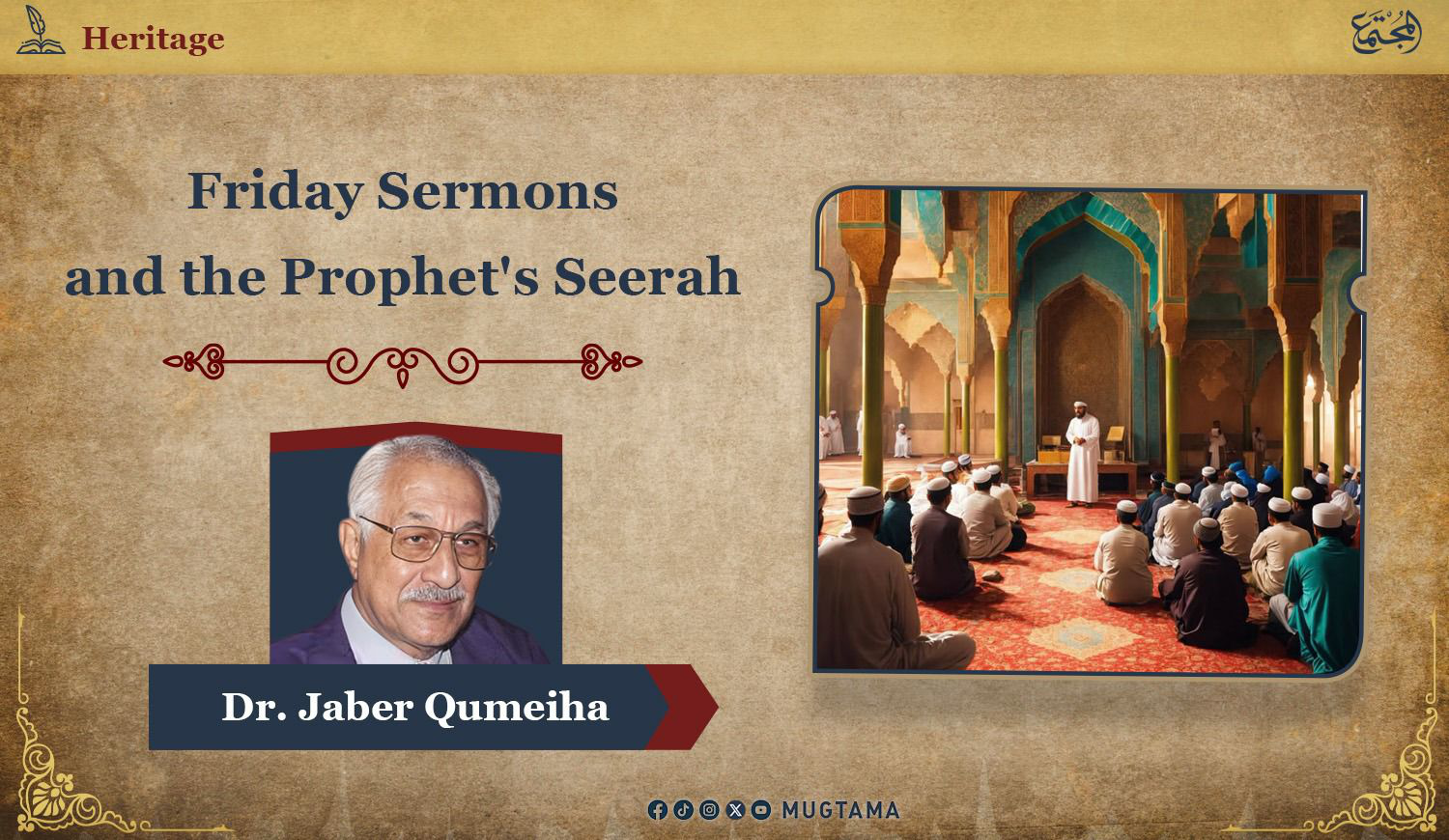Friday Sermons and the Prophet's Seerah

The Prophetic Biography (Seerah)
is a collection of the events and circumstances that form the fabric of the
life of Prophet Muhammad (peace be upon him), from his birth until he
met his Lord. Many authors of Seerah begin with either a long or short
introduction about the features and dimensions of pre-Islamic society. I
believe this is necessary so that the greatness of the Prophet Muhammad’s (peace
be upon him) life and the majesty of the Islamic message become clear, for
opposites are best recognized by their contrasts.
The Role of Seerah in Muslims Lives
My friend, who is a preacher at
one of Cairo’s mosques, is fond of seasoning many of his sermons with one or
more events from the Prophetic Biography. This is a commendable approach, for
it reminds listeners of the character of the Prophet (peace be upon him) and connects them to that
golden period in the life of Muslims, and indeed, in the life of all humanity.
Moreover, this adds enjoyment for the listeners, relieving them of any rigidity
that might be present in the sermon.
However, I criticize him
narrating the event in the flow of the sermon without pausing to extract the
psychological, behavioral, or human lessons it contains. He also does not attempt to connect the event with the reality of Muslims today, who are in dire need of knowing
the aspects of greatness in the life of our Prophet (peace be upon him), so
that they may continue walking on the clear, straight path whose night is as
bright as its day, from which none deviates except one who is doomed.
To give a specific example: in
one of his sermons, my friend spoke about the Conquest of Makkah. He narrated to the people how the Prophet (peace be upon
him) and the Muslims entered Makkah, how he ordered the destruction of the
idols, and how the words of the heavens rose on everyone’s tongues: {The truth has come and falsehood has vanished. Indeed,
falsehood is bound to vanish.} [Al-Isra 17:81]
The people truly enjoyed what
they heard, for my friend’s approach is correct and beautiful. But
unfortunately, he did not direct people’s attention to even one lesson among
the countless lessons of “the conquest.”
Why Did the Prophet Not Destroy the Idols Earlier?
If I were in his place, keen to
highlight the lessons and morals, I would have paused at the incident of
breaking the idols. I would have posed the following question: Why did the
Prophet (peace be upon him) not destroy the idols during the Makkan period
before migration?
He could have, under the cover of
night and in secrecy, sent some of his companions to destroy them without
Quraysh realizing, just as Prophet Ibrahim (peace be upon him) once did. Why
then did the Prophet not do this, and instead postpone the destruction of idols
until the Conquest of Makkah?
It was foresight and the genius
of Prophethood. If he had done so from the beginning, or on any day before the migration, the
result would have been:
1.
The idolaters would have
carried out a brutal massacre, with the weak Muslims as its victims.
2.
Quraysh would have
increased in disbelief and become even more inflamed in their defiance.
3.
They would have replaced
the destroyed idols with new ones.
4.
The Arab tribes, who
revered these idols just as Quraysh did, even if they had their own idols, would
have been provoked.
Thus, destroying the idols at
that stage would not have uprooted the creed of polytheism from the hearts of
Quraysh and their allies. The Prophet (peace be upon him) waited until the
Muslims grew stronger, until the features of Islam became clearer, until hearts
were prepared to accept the new message, and until Islam had enough power to
protect itself.
Then came the Conquest. The idols
were destroyed, their roots were eradicated from the hearts of the idolaters,
and the creed of monotheism (Tawheed)
naturally took their place, willingly and with conviction.
This is an eternal lesson for
preachers, leaders, and everyone entrusted with responsibility: Do not rush the
fruit. Every action must be done with calculation, patience, and sound
reasoning.
In my belief, if the Friday
sermon were to play this crucial role in explaining the features of Islam and
its methodology to Muslims, it would not have left any ground for the false
concepts that have brought calamities upon Muslims in our present age.
For Further Reading:
- How Did Prophet Muhammad Show Mercy to His Ummah?
- What Made the Companions Generation Special?
- The Ummah Obligatory Migration from Disunity to Unity
-------------------------------------------------------------










